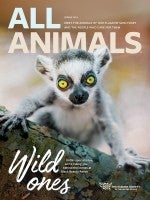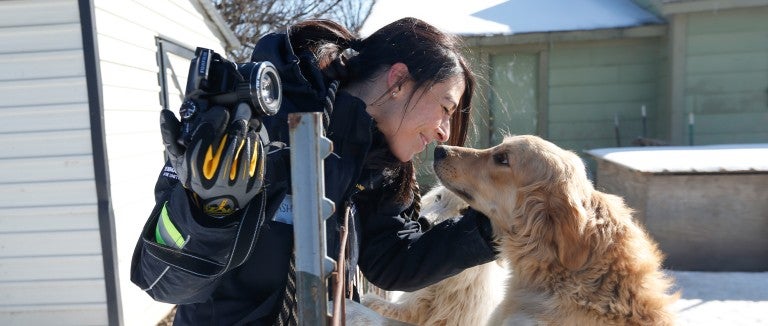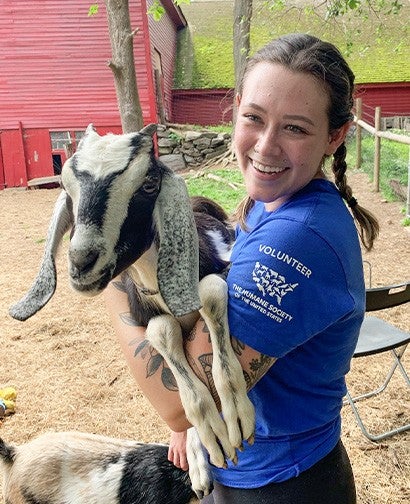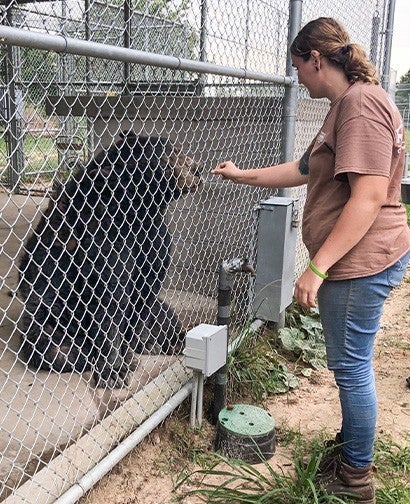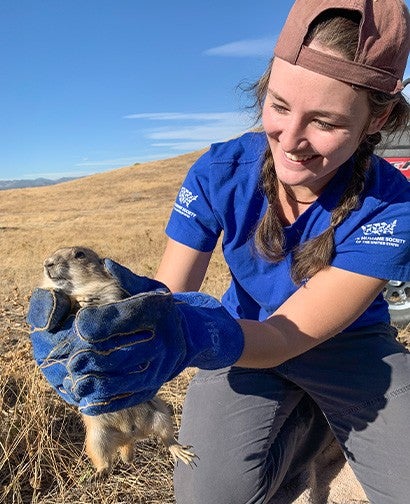For more than two decades, the Humane Society of the United States has welcomed interns hoping to expand and enhance their professional skillset—and broaden their animal welfare knowledge in the process. But the opportunity to fight for all animals hasn’t always been convenient or inclusive; our headquarters’ proximity to Washington, D.C., poses a financial challenge to many, which has had an adverse impact on the applicant pool.
“If you have limitations in terms of not paying someone in a high-cost area, it can create barriers to participation for individuals who don’t have the privilege of being able to dedicate large amounts of time and not get paid to work,” explains Lafayette Melton, HSUS senior director of talent acquisition and diversity, equity and inclusion.
The HSUS began paying all interns earlier this year, making the program more viable for a wider range of candidates and to reinforce why an internship with us is worthwhile.
“It’s a great way to make contacts at the org and in the field, to be mentored by our amazing staff who are leaders in animal protection and to get to work toward our mission,” according to Debbie Schockett, HSUS program director of volunteer services.
The Humane Society of the United States employs passionate animal lovers dedicated to furthering our mission to fight all forms of animal cruelty to achieve the vision behind our name.
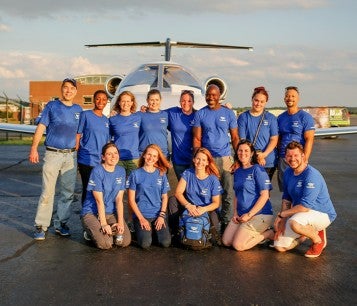
In these edited interviews, senior editor Danielle Tepper chats with a handful of former HSUS interns (some of whom are now full-time staffers!) about their experiences.
How did you find your HSUS internship?
“I started a student chapter of the Animal Legal Defense Fund at my law school in Orlando—which was a challenge, as they laughed at the idea of animal law! I somehow found Heather Carpenter [then director of grassroots campaigns] through social media and discovered that she worked for the HSUS and lived in Orlando. I reached out to ask if she’d be a guest speaker at one of our meetings, and she did a Lobbying 101 presentation where she told us about Florida Lobby Day. I found out about a legislative internship that would allow me to work on Capitol Hill for the summer—I was offered that internship and that was my start at the HSUS!”—Michelle Shaw, legislative intern, summer 2009 | now program manager of animal research issues
“When I was in undergrad, my school’s sociology department featured a guest lecturer from the HSUS who presented about the link between animal abuse and intimate partner violence. At the time, I was an assistant to a professor who knew how interested I was in the human/animal bond. She graciously set up a lunch meeting for me and that HSUS colleague and it was during that lunch that I decided I would work for the HSUS one day. I could hardly believe that a place like it existed! It was remarkable to me that I could spend my life helping animals for ‘work.’ During grad school, I kept my eyes on the HSUS Careers page and was thrilled when I saw the internship opportunity.” —Ashley Mauceri, campaigns intern, summer 2009 | now director of law enforcement outreach and engagement
How did you start to explore the world of animal welfare?
“When I was 11, I asked to be a volunteer at my local shelter for Christmas—I stayed as a volunteer until my senior year of high school, when I had an internship there walking dogs, caring for the rabbits and small animals and cleaning their cages every Friday morning. I also volunteered with the wildlife rescue center in my area for a year caring for baby birds, small animals, deer, waterfowl and much more. With all these experiences, it was my time to explore the legal aspect of animal welfare, as I have a passion for law and welfare policy.” —Fredrika Whitall, state affairs intern, spring/summer 2022
“I have been deeply passionate about fighting for animals ever since a middle school teacher showed me and other students a documentary about the cruelty of the meat, egg and dairy industries.” —Chris Holbein, federal affairs, 2002 | now director of public policy, Farm Animal Protection
Was anything particularly challenging, either professionally or personally?
“Losing some of the animal residents on the ranch to ailments and age. On my first day, I met a horse named Tobey who had a neurological condition, which made vital tasks such as eating and drinking difficult. As I was mucking his pasture, he would follow me around and gently approach me for comfort. Mucking his pasture became my favorite task. Later that summer, the staff made the difficult decision to euthanize him because his quality of life had decreased significantly. I learned lessons about prioritizing the animals’ wellbeing over our own that I’ve carried with me throughout my career.” —Taylor Favorite, animal care rotational intern at Black Beauty Ranch, summer 2019
“I found compassion fatigue somewhat challenging at first, but it spurred more motivation and more determination to do as much as I possibly could during my work hours. Once you see glimpses of the scope of the work that needs to be done to make the world a more humane place, you can’t pretend it doesn’t exist—but here we get to see the tangible changes we are making for animals, which makes it all so worth it.” —Emily Ehrhorn, puppy mills intern, summer 2015 | now senior specialist, media relations
Want more content like this?
This was written and produced by the team behind All Animals, our award-winning magazine. Each issue is packed with inspiring stories about how we are changing the world for animals together.
Learn MoreSubscribe